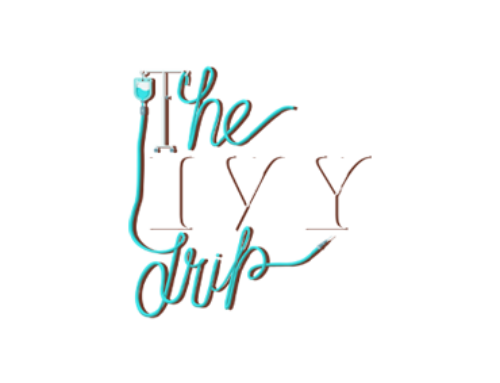Opioids! Commonly known as narcotics, is a deeply concerning topic for many people, especially if they are about to have surgery. Harvard trained anesthesiologists, Dr. Maleeha Mohiuddin and Dr. Dionne Ibekie, share the top 5 ways to minimize the amount of opioids you need to take after surgery. They discuss the importance of creating realistic expectations upfront, choosing the right surgeon and approach, talking to your anesthesiologist about different techniques for pain control, and maintaining a favorable mindset.
Beat Provided By https://freebeats.io
Produced By White Hot
INTRO
Maleeha: Opioids. Opioids. Opioids. On today’s episode, Dionne and I decided to talk about the hot topic of opioids. Specifically, ways you can avoid or minimize the amount of opioids you need to take after surgery.
Dionne: Oh, boy. Opioids is such a buzzword right now. Opioids are also often referred to as narcotics. And this is such a relevant topic?
Maleeha: Totally. I mean, some of you out there may be asking yourself, why is this even important? Like, if you’re in pain, just take pain meds. Done. Problem solved.
Dionne: Well, not quite. Opioids have their own side effects that can make recovery challenging. For instance, they can make you feel groggy or just out of it. They commonly cause an upset stomach and nausea.
Maleeha: For sure. I mean, high doses or long term use of opioids we know can cause constipation. And all of those things really prevent you from getting up and out of bed and on your way to recovery. And I also have that subset of people who want to have nothing to do with them. Either they’ve had a bad experience or there’s some fear of addiction.
Dionne: In fact, so many of our patients list opioids like codeine, Percocet, Dilaudid, and fentanyl as actual allergies. And when we ask them what their actual reaction is..
Maleeha: Let me guess it’s a bad side effect more than a true allergy right,
Dionne: Ding, ding, ding. Yes, but I get it. No one wants to feel sick to their stomach and throw up right after surgery. It’s miserable. So I completely understand why you would want to avoid this experience.
Maleeha: Yeah, and that wasn’t a guess Dionne. I hear that all the time from my patients, too. And that’s the reason why they list opioids as allergies, because they really want to avoid it.
Dionne: So common. Totally. That’s right. I can speak from personal experience because my first major surgery in 2008 was getting my appendix removed emergently. They prescribed narcotics. And the only thing I remember from that entire experience is the intense nausea, vomiting, and headache I had. Then years later in 2018, I had to get my gallbladder removed, and I have to just use ibuprofen and Tylenol because for me, I would have rather had the pain than the awful side effects. The memory of what I went through was so profound that many years later
Maleeha: Oh, man, that sounds horrible. Dionne, I didn’t even realize he went through all of that.
Dionne: It was awful.
Maleeha: Yeah, well, that’s why this topic is so important. And let’s not forget there is one major reason why we should look to limit opioids, they can be addictive. There is so much concern right now about opioid addiction, which is a very real thing in our country and has devastated the lives of many.
Dionne: Absolutely. Maleeha opioid addiction is too significant a subject to just be a bullet point. It has to be its own topic. There’s just too much to cover.
Maleeha: Yeah, totally. It deserves an entire separate episode, which we should do at some point.
Dionne: So with that being said, let’s dive into our five takeaways to help you reframe your thinking around opioids and the way to get your pain under control without relying solely on them.
Maleeha: Okay. So I think the first thing to consider is, number one, take a step back. Have a realistic expectation of what the pain will be like after your surgery. The first step to that is to understand what kind of surgery you’re about to have and all that it entails. Right. I mean, that sounds basic, but super important.
Dionne: Yeah. For instance, a total knee replacement is going to be very different from a knee scope in terms of expected pain and the amount of physical therapy required to recover.
Maleeha: Great point. I mean, having an idea of how long you should expect to take pain medication during the recovery period helps you just mentally prepare for the road ahead. How would you suggest somebody get a clear picture?
Dionne: Well, you can get an idea based on your conversation with your doctor and also other friends who have gone through a similar experience.
Maleeha: Yeah. Basically, either extreme expectations can be unrealistic. A lot of time I have a patient who refuses to take any pain medications after a surgery and then others who will think they’re going to need way too much.
Dionne: Yeah, we see the whole gamut. You have to set yourself up for success, guys, so you can communicate with your family and friends, especially coworkers, partners, children. Sometimes, you know, people just expect you to be 100% really quickly and you feel that pressure to get back on your feet, do work and chores before you’re actually healed.
Maleeha: Totally. And that can push you to take more medicine or not take care of yourself properly. Right? Yeah. I one time had this patient who was expecting to be on a Disney cruise ship a week after having major shoulder surgery. It was like a total shoulder, and I was like, no, the last place you want to be is on a boat. Right.
Dionne: Absolutely.
Maleeha: Minnie and Mickey and the gang are just not going to help you out there. Maybe Donald’s Rich uncle, he was loaded. I remember him. But he’s not helping you. No, he’s not helping out there. So this is very important to know what you’re getting into and what the realistic expectation should be.
Dionne: Yeah. I would say also how the surgeries performed can make a difference. Which leads into the second point. Research your surgeons.
Maleeha: Amen. Yes.
Dionne: Talk to them about expected recovery time and how they perform their procedures. Not every surgeon is trained to operate the same way, and some have really specialized techniques and equipment that can decrease recovery time and also limit post pain. A common example of this is an open hysterectomy
Maleeha: which traditionally requires a big incision
Dionne: versus a laparoscopic hysterectomy
Maleeha: Way fewer small incision, tiny incision
Dionne: Yeah. So drastic difference between the two
Maleeha: Very different. Once you’ve decided which surgeon is best for you, our third suggestion would be to talk to your anesthesiologist about your concerns for pain on the day of surgery.
Dionne: Hello. You can’t have adequate pain control on the day of surgery without yours truly. We are typically forgotten in a lot of things, but in this case, we are literally your best friend.
Maleeha: Yeah. I even tell my patients that. I tell them when I meet them, don’t worry, I’m going to be the best bartender you have ever had. And it gets a giggle from them. But it’s true. It is. I enjoy this part of my job, actually, immensely, because it’s my goal to make people comfortable, not just get through the surgery. So I will tailor will do everything in my power to tailor our plan to fit your needs. So definitely ask your anesthesiologist about other options. Like we call it regional anesthesia, which is specifically using epidurals, spinals, peripheral nerve blocks with catheters. And I know that sounds very jargony. I just threw a lot of terms out there, but my point is, we actually have an arsenal of drugs and techniques that we’re trained in to effectively manage pain in most patients.
Dionne: And also, if you have a history of addiction, let the anesthesiologist know. I’ve definitely had patients terrified to have any pain medications because of past addiction issues. So we can work to figure out the best plan to work for you so that we can keep you on track.
Maleeha: Yeah, and it’s a great point. And I want to say that no pain medication, again, it can be unrealistic, and it actually can harm your recovery. You’re not going to be able to do the physical therapy that you need and actually get up and out of bed if you’re in too much pain to move. It’s just not going to help you get well. It can actually cause harm.
Dionne: Correct. Blood clots, pneumonia. Those are two big ones that come to mind as some big harms from staying in bed too long. And again, those are consequences from being in pain. So you’re absolutely right. Controlling pain is important for recovery.
Maleeha: Yeah, absolutely. Bad things. Bad things. Blood clots, really bad. So, bottom line, we got to work together to find the right balance for each person. And you’ll be surprised, the more you share with your team, your anesthesiologist, your surgeon, about your past experience and your concerns, the better we can do tailoring your next experience.
Dionne: So, number 4, try to max out on all the other medications and techniques that are non narcotics, and we suggest you do the same when you’re at home. Things that you can do are resting ice and heat, compression, elevate, Tylenol, ibuprofen, Toradol. These are medications that you kind of forget about, but are really good pain medications. We call it the multimodal approach, which is a fancy doctor speak for multiple modes, therefore multimodal. Haha.
Maleeha: Cute. And some of these meds also work synergistically, so they work together. The combined powers of them are stronger than just the one off ones. And the way I like to explain this is the best analogy I can come up with on the fly is I love to bake. You know, that always cooking, always baking. But
Dionne: Betty Crocker
Maleeha: if you want to sweeten a dish, you can use regular straight sugar. I mean, that’s like the go to sugar. Or you can actually take a more balanced, nuanced approach, use a couple of different things like maple syrup or honey or there’s a whole new range in baking that I don’t know that much about. What I see at Whole Foods and stuff, there’s like agave nectar and monk fruit and coconut sugar and applesauce. You can use all these different techniques that you can use to sweeten your food without using just refined sugar.
Dionne: So, Maleeha, you are downplaying your baking skills. Don’t act like you don’t know what these are.
Maleeha: See, I don’t know what they know of them, but you do. I’m the straight sugar, maybe brown sugar and honey, but you know all of these things. Honey anyways, but I get it. This is a great analogy.
Maleeha: Yeah, it’s good experiment. Exactly. Not with drugs. Hold on. No, we’re not advocating for that.
Dionne: Yes, absolutely. Similarly, the multimodal approach means you don’t just rely on opioids for pain control, but there are other meds you can use and add to your regimen that make it easier for you to stop using narcotics over time.
Maleeha: That’s a great point, because ideally, there is a point where you need to taper off narcotics, and it makes it a lot easier to do if you’re using other medications that are more over the counter. So, finally, number five, I think, is the most important tip.
Dionne: Okay?
Maleeha: And that is to have the right mindset before going into surgery. Specifically, don’t catastrophize. And yes, that is a real word, actually.
Dionne: I use it all the time.
Maleeha: Yeah, focus on positive outcomes. You know, Dean, on my pain rotation during residency at Brigham, I did a whole presentation on this topic, catastrophes. It there’s actually a questionnaire you can take that predicts how well you will handle pain after surgery. Interesting. There’s like a correlation based on how you score on the questionnaire and the pain that’s reported afterwards. Really fascinating. And if people are interested in it, we can do a whole another episode. I’m sure have my notes on that lecture that I did. I can link the questionnaire below, but there is evidence to show that how you feel and how you anticipate pain can lead to this, like, up regulation of certain central pain pathways. And that means that these central pain pathways are primed for feeling pain even when they’re not actually being physically stimulated for pain. It’s really fascinating. So there is a synergy between our perception of pain and also our mental state. And I’m not trying to suggest that pain isn’t a very real thing and it’s all mental, but having a positive expectation is hugely beneficial.
Dionne: Absolutely. That makes a lot of sense. Maleeha, so essentially, build your support group of friends, your tribe of positive affirming people. Try to stay positive and avoid listening to those negative stories. Like that one auntie who knows somebody, who knows somebody who had the worst possible luck every time, get the cataract removed and came out with the shifty eye, adopted a shelter dog, turned out to be a coyote. You know what I’m talking about? Craziest story ever.
Maleeha: Yeah.
Dionne: We don’t need those type of people. We need positive thoughts that leads to positive outcomes.
Maleeha: Absolutely. And I’ve had patients have you rolled back to the operating room and I’ve been handed an actual script of positive affirmations. The patient wants me to read out loud while they can roll your eyes at that. But I’m like, whatever is going to get your head right and mind right and make you feel like everything is going to be good. It actually is evidence based that it does help people with their pain afterwards.
Dionne: Absolutely. So to recap, number one, have a realistic expectation of your recovery phase by talking to your doctor.
Maleeha: Number two, research your surgeons and find the right approach for you.
Dionne: Number three, talk to your anesthesiologist about ways to avoid narcotics and your previous experiences, good or bad.
Maleeha: Number four, use a multimodal approach.
Dionne: And number five, get your mind right. Positive thinking. Yes, positive thinking.
Maleeha: So thank you so much for joining us on that positive note. We hope that this helps you feel more prepared for the road to recovery. For more Ivy Drip, check out our website at theivydrip.co and email us with your stories, comments, questions at info@theivyrip.co. We love to hear from you all. And don’t forget to subscribe to our podcast and spread the love. Now for the random tip of the day.
Dionne: Tip of the day. Make a playlist. You and your friends gather around. Make that OG mixtape. Because you know what? It really helps people relax and get into the right headspace as they go into surgery. And when they wake up, what would your mix tape be? Let us know and email us at info@theivydrip.co.
Maleeha: That’s a great tip. What would be on your playlist?
Dionne: Definitely, a little well…actually, I think the old me would have a little Juvenile “Back that thing up” because that’s the anthem..
Maleeha: you want to like wild out.
Dionne: Yes. Totally wild out party, but I’ve grown. I’ve matured. Yeah, I’m a little more gospel now. Oh, wow, you really have. What about you? What about you?





